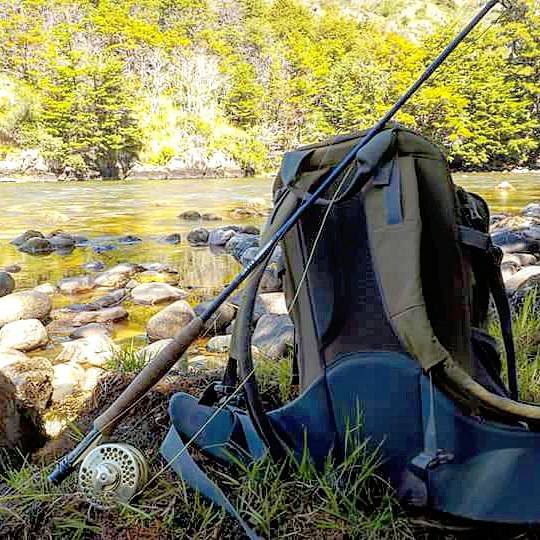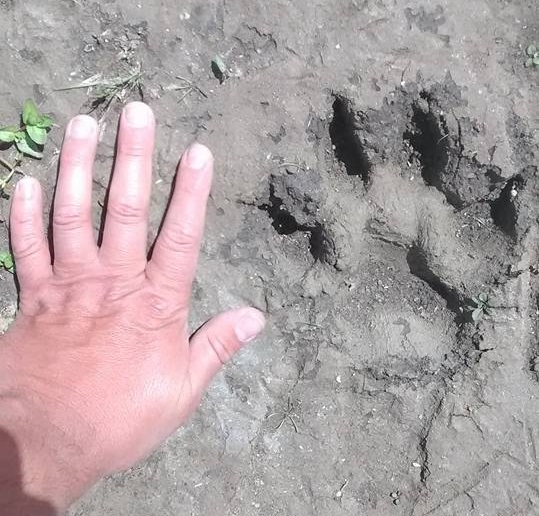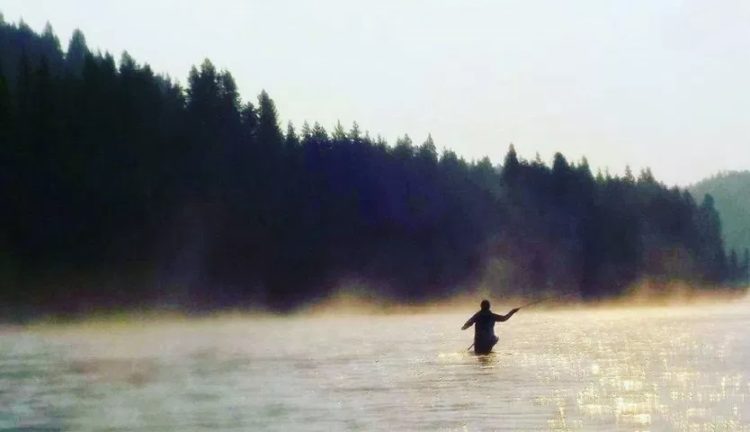I grew up camping. Some of my happiest childhood memories are of being curled up in a sleeping bag and a pup tent, reading comics by flashlight. I always assumed everyone grew up that way, loving and appreciating the outdoors by visiting it every now and again. So, you can imagine my shock and utter disgust when I first heard someone mention going “Glamping” and found out how ridiculous “going camping” has become for so many people.
Nowadays, going camping is merely bringing your indoor comforts outside. Campers go to designated campgrounds with outdoor lighting. They stay in campers and giant weatherproof tents. They bring camp chairs, air mattresses, generators, batteries, fire starting logs, propane stoves, and pre-cooked meal packets. They even bring televisions and WiFi routers so they won’t miss the latest episode of Game Of Thrones.
Modern campers seem to do their damndest to make a night or two in the woods as utterly civilized and convenient as possible. It’s an epidemic that is ruining the whole camping experience by taking away all aspects of self-reliance. Campers now distance themselves from any connection with the outdoors, which is the very reason we go camping in the first place! I just don’t understand camping like that. Packing and carrying all that crap must be a mind-boggling pain in the ass. You just don’t need it. In reality, as unbelievable as it sounds, you can still be safe, comfortable, and happy on a camping trip with hardly anything at all.
To spend the night or even several nights in the woods, you need three very basic things: food, water, and shelter. That’s it. These three essentials to life have been keeping the populace going for thousands of years. I can’t count the numbers of nights I’ve spent in the back-country carrying everything I need in a single backpack. Now I don’t mean a massive pack frame either. My current camping bag is a G4Free 50L hiking backpack that I bought on Amazon for 30$. It’s light, water resistant and had more than enough room for the things I need to spend a week in the woods. When I pack the bag for a camping trip, aside from a paperback book and change of clothes or two, I generally stick to the three essentials of water, food, and shelter first. Everything else I add is simply a luxury.

Water is always first and foremost. I’ll fill up and bring a 1000ml water bottle that I can clip to my belt or stick in the back of the back-pack. I’ll also bring a water filter, Lifestraw makes several good ones, and a small cooking pot to boil water in. There have been a few situations where I’ve drank directly from a mountain stream, but having suffered through Giardia once or twice, I highly recommend filtering and then boiling all drinking water. You should only drink unfiltered water directly from the source when it’s your last option. I always try to take water from streams and rivers, since moving water has very little chance to grow bacteria and become stagnant.
Shelter is the next issue. A tent is the most obvious but can be cumbersome to carry. There are however several options for small one-man tents that take up minimal room in a pack and if you want to one get one. But even tents aren’t entirely necessary. Unless I’m staying in one location for an extended period of time, I generally prefer to build my shelters. With a bit of ingenuity and some parachute cord a simple lean-to can be put together in about ten minutes or so. I usually slap together a rough frame and then cover it with a water-proof tarp I keep rolled into my sleeping bag. I clip the sleeping bag to the bottom of the pack before I go and my shelter’s all set.
Once a tarp and frame is in place I will cover the entire thing in pine boughs. These act as both insulation and further weather proofing from unexpected rain or even snowstorms. I will also line the bottom of the shelter with pine boughs, as they keep my body separated from the ground where I can lose a lot of body heat and are surprisingly comfortable. With a good lean-to combined with a decent sleeping bag and a fire set close to reflect heat, I am warm and happy throughout the night. Plus you get a chance to build something; to use your own creativity for survival and comfort.

Camping food isn’t as much of a challenge as a lot of people make it seem. Instead of lugging monstrous coolers of hotdogs and buns and condiments into he woods with me, I carry a few small simple items that are very filling. Canned vegetables and beans are simple and quick to make in a fire by simply opening the can and setting it in the coals. When the can starts to bubble, the food is ready. I also bring a couple bags of brown rice and pasta. Again, these things are both light to carry and easy to make by simply tossing the rice or pasta into a pot of boiling water. Both rice and pasta give a good carb boost and are very filling. As far as proteins go, I usually go two ways: canned chicken and wild fish.
Canned chicken is great because the cans are small and light to carry and can either be eaten alone or mixed with rice and or vegetables. Fish are easy to come across in most places and catching them is way easier than people believe. A simple length of monofilament line of about twenty feet or so and a couple small hooks always go in my camping pack. The hook should be baited with a worm as worms are easy to find and are pretty much like crack to fish. To find worms just turn over a few rocks or dig down with a knife blade into soft brown earth. Bait your hook and toss it into the water on the line and wait for a tug. Most freshwater fish can be eaten whole, with only the guts removed. You can cook them in a small frying pan or weave yourself a grill out of thin green branches. You can also slow roast a fish on a stick or boil it in a pot of water. Fish are the spam of the wilderness.
Camping is a simple thing that we tend to over complicate, yet it doesn’t have to be. With a little bit of ingenuity, you can have a great and successful time in the woods with only a pack, a lighter, and a good knife. For me especially, keeping camping simple and carrying as little equipment as possible is part of the whole experience. It allows me to rely on intellect and instinct to solve problems and lets me explore. I can go farther than other campers and travel much quicker. I can get into territory that maybe no one has ever gotten into and maybe see something that no one has ever seen. Because that’s the real reason why we camp…to get away from it all.
About the author: Willis “Kubie” Brown is a writer for the Loadout Room as well as a freelance writer for several small publications. He also works as professional fishing and hunting guide working primarily in Southwestern Montana. Kubie’s love of the outdoors has led him to explore much of North and South America, where he spends most of his time driving and sleeping in beat-up Toyota 4 runner, in-between long jaunts of hiking, camping, hunting, and perhaps his greatest passion, fly fishing. Kubie attended Southern Vermont College where he mostly played rugby and studied literature before receiving his B.A in Creative Writing. When he’s not out in the field doing what he loves, Kubie spends most of his free time tying flies, sketching, rock climbing, cross country skiing, and sampling different varieties of whiskey. He runs his own fly fishing blog called Fertile Waters Media which can be found at www.fertilewatersmedia.com. His Instagram is also available at kubiebrown_fertilewaters.










COMMENTS